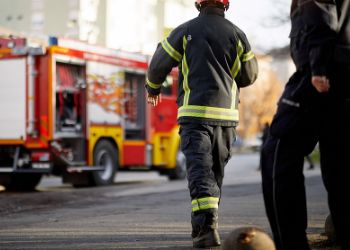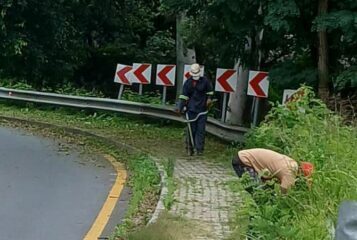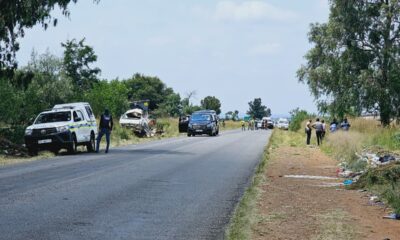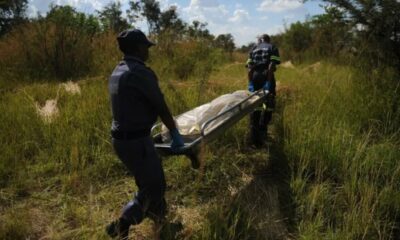News
City vs Volunteers: Tshwane Heads to Court to Halt Community Firefighting Groups

A battle over fire hoses and hydrants is blazing in the capital, not between flames and firefighters, but between the City of Tshwane and the very people trying to help.
In a dramatic turn, the Tshwane municipality has launched court proceedings against multiple volunteer firefighting organisations, accusing them of operating illegally, undermining official emergency services, and drawing from city water infrastructure without permission. At the centre of this legal standoff is a deep divide over community service, legal red tape, and who truly has the right and duty to save lives in times of crisis.
The Heart of the Legal Battle
City spokesperson Lindela Mashigo said the municipality had no choice but to take the matter to court. According to the city, groups like Sinoville Firefighting Association (SBBV), Fire Ops SA, Fidelity Secure Fire, and Laudium Disaster Management are breaching both national and local laws.
“These entities are functioning without legal authority, regulatory approval or formal agreements with the municipality,” said Mashigo, arguing that this creates safety and operational risks.
At the core of the city’s argument is the constitutional mandate that firefighting is the exclusive responsibility of municipalities. That means, legally, no private or volunteer fire service may operate without formal designation from the Gauteng MEC for Cooperative Governance, a step Tshwane says none of the groups have completed.
Community Firefighters Push Back
But volunteer groups are not going quietly. Johan Botha, founder of SBBV, says they’re not breaking the law, they’re filling a life-threatening gap.
“SBBV is a volunteer organisation from the community, for the community,” Botha said. “Not a single cent of our income goes to salaries. We’re here to help, not profit.”
According to Botha, SBBV has applied for official recognition and been denied. He insists they’ll keep saving lives with or without the city’s approval.
Burn Permits, Hydrants and Selective Service
The City’s grievances go beyond paper trails and policies. Tshwane accuses the groups of:
-
Drawing water from municipal hydrants without authorisation, contributing to water loss.
-
Operating only in affluent suburbs and industrial zones, leaving townships and rural areas out.
-
Issuing their own “no burn” permits, creating confusion and undermining city emergency protocols.
The city argues that the groups, some of which run “for profit” are disrupting command structures during emergency incidents and creating public safety risks.
AfriForum Also Caught in the Fire
Volunteer firefighting isn’t the only issue. The city has also reportedly halted AfriForum’s Neighbourhood Watch and community cleaning operations, citing similar legal concerns.
Allies or Adversaries?
Despite repeated efforts to negotiate, including official warnings and meetings, Mashigo said volunteer organisations refused to comply. Some even responded with “threats and resistance,” prompting the city to escalate to legal enforcement.
But community leaders and residents feel differently. For many in Tshwane’s northern suburbs, volunteer firefighting groups have responded faster and more effectively than official services.
On social media, residents voiced frustration:
“If Tshwane can’t reach us in time, who do you think we call? These volunteers show up,” tweeted one resident from Akasia.
“Rather work with them than fight them. Lives are at stake!” another user posted in response to the city’s statement.
The Bigger Picture: Municipal Capacity and Community Grit
This court battle sheds light on a deeper issue in Gauteng’s emergency services, the strained capacity of municipalities to deal with fires, disasters, and rapid urbanisation.
With over 100 informal settlements, growing service backlogs, and underfunded departments, community-run initiatives have become a bandage solution, but a necessary one for some.
Political analyst John Molepo notes that “this case represents the growing frustration between underperforming municipalities and communities that are no longer willing to wait for help.”
The court will now weigh Tshwane’s demand for full legal compliance against the reality of urgent, often life-saving action by volunteer crews. At stake is not just jurisdiction, but the future of community involvement in public safety.
As fires continue to burn and lives hang in the balance, Tshwane’s court showdown raises a burning question:
Should we punish volunteers who fill gaps or empower them to do it legally?
{Source: The Citizen}
Follow Joburg ETC on Facebook, Twitter , TikTok and Instagram
For more News in Johannesburg, visit joburgetc.com



























